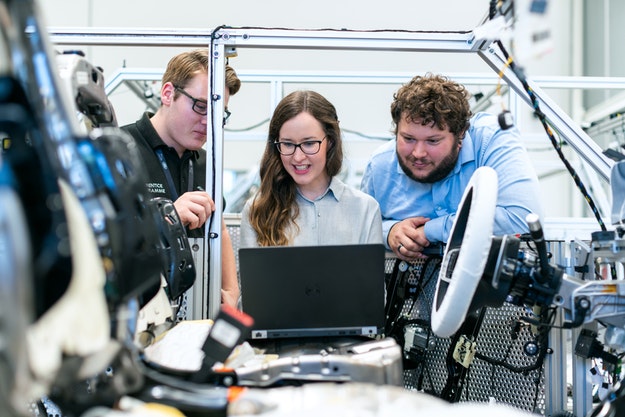It’s one of the American Dream tales. A wide-eyed starlet moves into the big city, gets discovered, and sets the silver screen alight with their memorable performances. This is a familiar tale by actors and actresses that have made it, but there are even more thespians who have tried it and failed. Those who don’t succeed at their first try often make the same mistakes. Keep reading to learn about these mistakes and what not to do when trying to become an actor in New York City!
Going It Alone
Everybody knows that actors use agents, but when you are starting out, it is hard to find an agent or justify the costs associated with an agent when you are barely getting any money. Some actors choose to go it alone and become freelancers.
Being a freelance actor means more money stays in your pocket, and you have full control over your career. Although that may be tempting, it usually does not produce the results you are looking for. Generally speaking, you are better off with an agent than without.
Some of the benefits of working with an agent are:
- Being part of a team is more productive, two or more heads are generally better than one.
- An agent has an already established network of casting directors, directors, and producers with whom they are in constant contact with. Building these relationships takes years and cannot be easily replicated.
- An agent and their agency is professional, organized, skilled, and equipped to run the administrative side. Although a freelancer can do these tasks, it takes away time from their core craft, acting.
- Negotiating a deal or performance contract by yourself can be difficult. It requires an understanding of the law, industry norms, and negotiation skills. Negotiating a hard deal could also put you, the actor, against your potential employers, which can be awkward. It’s better to have an agent as a bumper.
- An agent can also offer a different perspective on your work, career path, and the industry. Their years of experience will not only come with insights but will include strategies that you may not have thought of yourself.
Not Networking
Networking is usually an underrated strategy for getting work in the industry. It is also a chore that a lot of actors try to avoid, but it is necessary. What you know is important, whom you know is even more important.
Networking isn’t just about having interesting conversations at cocktail parties. It involves a lot of ingratiating, which a lot of people find demeaning.
Networking is getting to know people and them getting to know you. To start your network, you need to be present where industry players meet. You can start with attending acting classes; you can meet other actors here to share insider tips.
You can also use digital platforms to expand your network, especially social media. It helps if insiders know you as someone who is engaging, helpful, and knowledgeable.
Being Too Cool for School
Everybody needs and uses acting classes, take our word for it. No matter how far you have gone, you can discover new techniques and skills in an HB acting workshop. The classes help you to:
- Read and understand a script, so that you understand the plot and how your character fits into it.
- Decode the subtext – The best films and performances say a lot without actually saying it directly. The subtext is in a pause, look, or any action that gives a glimpse of the character’s inner emotion, intention, or meaning.
- Work in a production team – Acting is never done solo, even for a monologue. As an actor, you need to be able to work with other actors and behind the scenes staff to get a production done.
- Learn industry terms and jargon – Film and theatre-like most industries have their own terminology, shorthand, and phrases that you must understand to navigate it.
- Learn multiple methods of acting – Bringing a character to life can be done using various theories and practices. A workshop will not only teach you acting methods but will help you discover which one works best for you.
- Exposure to multiple genres – Acting in film, on stage or on television all require a different approach. An actor must understand the difference between the mediums and what it would take to deliver a performance in each instance.
- Understanding your limitations – Acting is a physical exercise, and so naturally, we have our limits. Workshops help you understand these limits and how you can work within or expand your range. A good example of this is how you use your voice to project speech or evoke emotion.
Acting workshops are not just for newbies; experts who have been in the industry for decades still use them to improve their craft.
Lights, Camera…
Even for those who have made it, the story is not as simple or as straight forward. Acting is a career, a craft that requires hard work and commitment to get anywhere.
Action is what will get you ahead in the acting industry. You must actively seek to be better and seek new opportunities. Acting is an art, a science, a passion; it requires a dedicated will to go beyond your comfort zone. So if you want to make it, be active.











